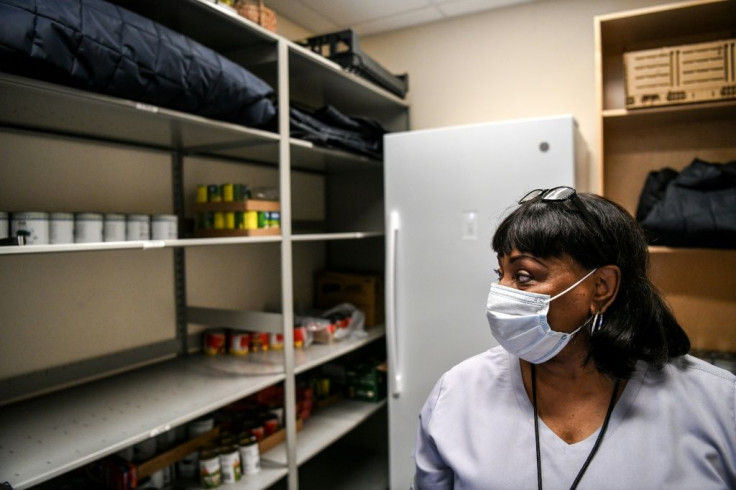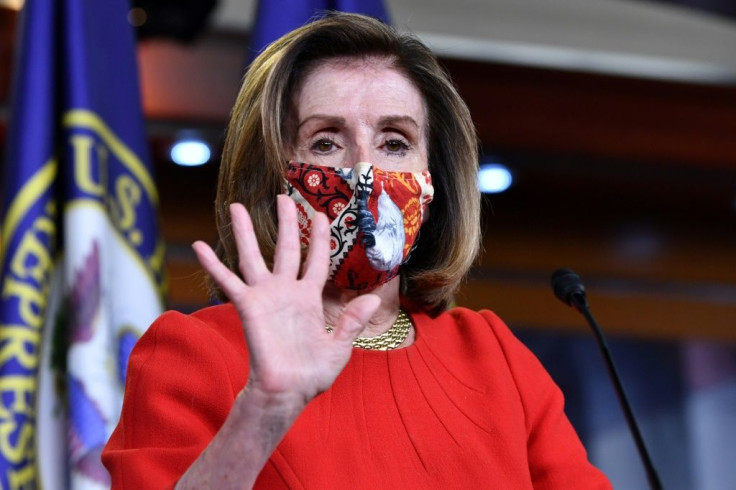Surge In US Jobless Claims Underscores Need For Stimulus
New applications for US unemployment benefits surged last week by 137,000, according to government data released Thursday, underscoring the need for more economic stimulus as Covid-19 cases hit new peaks.
The gain was far higher than economists had been expecting and ramps up pressure on US lawmakers to break the impasse on a new federal relief package to help families and businesses hit by the pandemic.
With millions of unemployed workers faced with losing their benefits by the end of the year, Democratic House Speaker Nancy Pelosi said lawmakers may stay in Washington through the Christmas holiday to pass a new spending bill.
"We'll see how it goes. But we cannot leave here without having a piece of legislation," Pelosi told reporters on Thursday.
Talks have been going on for months with no agreement, and new proposals floated in recent days have yet to win support from all sides.

The massive rebound in unemployment applications was the biggest since March 28 during the early days of the coronavirus pandemic, and took the total number of initial claims to 853,000 as of the week ended December 5, the Labor Department reported.
Claims filed under the special Pandemic Unemployment Assistance also saw a jump, rising 139,000 to 427,609 new filings.
Applications fell in the prior week which included the Thanksgiving holiday, and although economists had been expecting a rebound, the consensus was for a much more modest increase.
"The Thanksgiving holiday may still be wreaking some havoc with the data, but the underlying picture is still one of weak labor market conditions as the coronavirus surges," Nancy Vanden Houten of Oxford Economics said in an analysis.
For the week ended November 21, the total number of workers receiving some form of assistance, including from two pandemic emergency programs, fell 1.1 million to 19 million, according to the report.

Those special programs that provide extended benefits and help to workers who do not usually qualify for unemployment benefits, like gig workers, will expire by the end of the year unless lawmakers in Washington overcome their differences and agree on a new relief package.
The data confirm the recent weakening trend in the labor market as the world's largest economy deals with the world's worst coronavirus outbreak.
Job gains in November were disappointing, and nearly 11 million people remain unemployed since the start of the pandemic. Economists warn December could show a worsening picture.
"Given COVID-19 cases and deaths are now regularly setting new highs, these reports put into question job growth in December, especially given the rapid slowdown in growth in November," said Robert Frick of Navy Federal Credit Union.
Treasury Secretary Steven Mnuchin unveiled a $916 billion proposal earlier this week that included extended unemployment benefits, some help for struggling state and local governments, liability protections for businesses and $600 checks for all American taxpayers.
However, Democratic leaders say the White House plan falls short, and they remain focused instead on a $908 billion compromise plan introduced last week by a bipartisan group of legislators.
Congress has been deadlocked for months over passing a follow-up measure to the $2.2 trillion CARES Act passed in March that was credited with preventing an even worse economic crisis.
Senate Republican leader Mitch McConnell has expressed support for a new package, but objected to the amount Democrats want to spend as well as to provisions giving aid to state and local governments.
"Our people need another dose of support as we hope to close out our battle with this virus," he said in the Senate on Thursday.
"We should be doing everything we can to prevent layoff, create jobs where possible, and race toward the vaccines that will end this nightmare."
© Copyright AFP {{Year}}. All rights reserved.





















